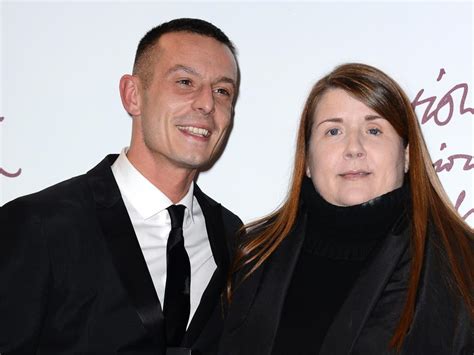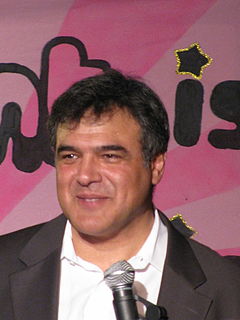A Quote by Margaret Heffernan
The biggest catastrophes that we've witnessed rarely come from information that is secret or hidden. It comes from information that is freely available and out there, but that we are willfully blind to.
Related Quotes
Well, there's a question as to what sort of information is important in the world, what sort of information can achieve reform. And there's a lot of information. So information that organizations are spending economic effort into concealing, that's a really good signal that when the information gets out, there's a hope of it doing some good.
Well, there's a question as to what sort of information is important in the world, what sort of information can achieve reform. And there's a lot of information. So information that organizations are spending economic effort into concealing, that's a really good signal that when the information gets out, there's a hope of it doing some good...
There's a lot of health information available on your smart phone. There's financial information. There's your conversations, there's business secrets. There's an enormous long list of things that there's probably more information about you on here than exists in your home, right. Which makes it a lot more valuable to all the bad guys out there.
We are hurtling back into a Soviet abyss, into an information vacuum that spells death from our own ignorance. All we have left is the internet, where information is still freely available. For the rest, if you want to go on working as a journalist, it's total servility to Putin. Otherwise, it can be death, the bullet, poison, or trial -whatever our special services, Putin's guard dogs, see fit.
Because your brain uses information from the areas around the blind spot to make a reasonable guess about what the blind spot would see if only it weren't blind, and then your brain fills in the scene with this information. That's right, it invents things, creates things, makes stuff up! It doesn't consult you about this, doesn't seek your approval. It just makes its best guess about the nature of the missing information and proceeds to fill in the scene.
You can't just blurt the information out to the Russian foreign minister and the Russian ambassador. What happens is, the information goes back to the CIA, to the originating office. The CIA will pull the relevant information out of the report, put it on a new blank sheet of paper and then type at the top, "Secret releasable to Russia." That way, nobody gets in trouble, no sources and methods are revealed, everybody's happy, and we can establish something of a liaison relationship to the Russians. That's not what the president did.
Data isn't information. ... Information, unlike data, is useful. While there's a gulf between data and information, there's a wide ocean between information and knowledge. What turns the gears in our brains isn't information, but ideas, inventions, and inspiration. Knowledge-not information-implies understanding. And beyond knowledge lies what we should be seeking: wisdom.
Normally if you add information to information, you have more information. In case of my art, I destroy information, I would say, because the image is disturbed by the writings. In a way, they become pure imagery. For me it's really fun because it's an idealistic approach to images, to just play around with information and see what's happening.

































